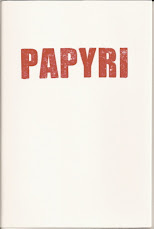1964:
One morning when she was seven, lying in bed waiting to be called by her mother, Rosemary Brown felt a presence. Turning about, she found herself facing a man with long hair, dressed in unfamiliar period clothing. Although she was frightened, his first words were reassuring. He told her that she had a special destiny … Then he disappeared. She forgot about this visitation for some time until, one day when she was studying, she turned a page in her high school textbook and found herself staring in amazement at a photograph of the man she had seen in her bedroom. The name under the photograph identified him as Franz Liszt, composer and pianist. … More years passed. She married, then was widowed. Once again she was confronted by the apparition of Liszt, who now explained that she was to write music, and that he would help her.
– Hazel M. Denning, PhD, True Hauntings: Spirits with a Purpose (St Paul, Minn: Llewellyn Pub., 1996): 122.
Since then, Rosemary Brown has written a series of musical compositions, allegedly from the dictation of Liszt, Beethoven, Brahms, Chopin, Debussy, Rachmaninov, Schubert, Stravinsky, and various others. Opinions differ on the merit of these pieces. British composer Richard Rodney Bennett has said: “A lot of people can improvise, but you couldn’t fake music like this without years of training. I couldn’t have faked some of the Beethoven myself.” Concert pianist Hephzibah Menuhin confirms that “Each piece is distinctly in the composer’s style.” Leonard Bernstein is also said to have been “highly impressed” by the music Rosemary showed him.
Unfortunately, none of them can be claimed to be as good as the works produced during their authors’ lifetimes, which throws some doubt on the notion of “dictation.” What is indisputable is that they are far beyond the mediocre training and abilities of Rosemary Brown, whose entire musical education consisted of a few piano lessons in her youth. What’s more, the speed with which she writes them down – often complete orchestral scores, with multiple parts – is faster than most composers could possibly manage.
Where do they come from, then? Certainly not from Rosemary’s conscious mind. Perhaps from beyond the veil; perhaps (as Rosalind Heywood, author of The Sixth Sense, suggests) she is “the kind of sensitive whom frustration, often artistic, drives to the automatic production of material beyond their conscious capacity.”[1]
Poems, Imitations & Translations
Tuesday
Case Studies (3):
Subscribe to:
Post Comments (Atom)








.jpg)
No comments:
Post a Comment